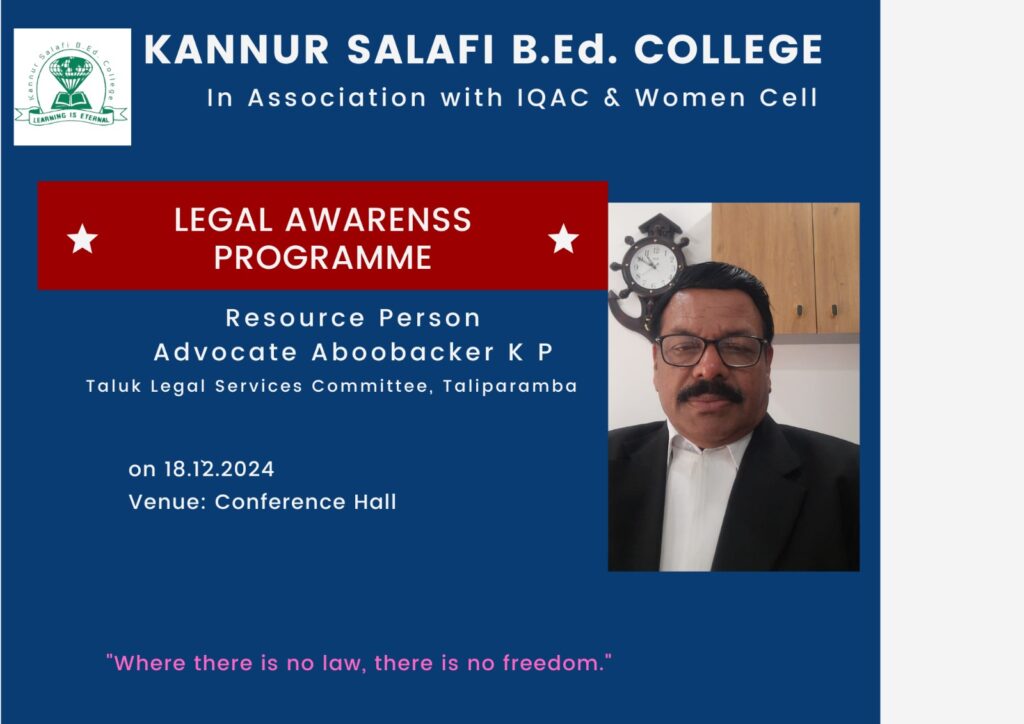
The women cell at Kannur Salafi B Ed college, Villagemukk Kannur was started with the aim of equipping and empowering women to recognize their true potential and to help them attain their own stand in a competing world. A women’s cell, often referred to as a women’s commission or women’s rights organization, is an institutional body or organization dedicated to advocating for and safeguarding the rights and interests of women. Women’s cells work to raise awareness about women’s rights and issues, including gender-based discrimination, violence, economic disparity, and political underrepresentation. The cell aims at creating awareness and provides a platform for women to share their experiences and views regarding their status in the society and to suggest ways to improve and empower themselves. The cell provides a conducive counselling environment for the female gender to share their issues. They also try to incorporate hygiene habits and ensure a healthy atmosphere in and around the college.
OBJECTIVES:
- To create social awareness about the problems of women and gender discrimination
- To develop the self confidence of women
- To assert the importance of spiritual, economic, social racial and gender equality
- To highlight the importance of health and hygiene.
- To direct women’s role in the society
- To safeguard the rights of female students, faculty and staff members.
- To provide a platform for listening to complaints and redressal of grievances.
- To ensure personality as well as academic development of students.
Women cell committee
Dr. Naseerali M K, Principal (Chairperson)
Mrs Sudha M, Asst Professor (Convenor)
Mrs Anitha P C, Asst. Professor (Member)
Mrs Dhanya P V, Asst Professor (Member)
Mrs. Rayana Remeshan (Member)
Mrs. Drishya K P ( Member)
Programs:
Women’s cells provide a safe space for female students to report incidents of gender-based discrimination, harassment, or violence.
Women’s cells organized awareness programs to promote gender sensitization among students, faculty, and staff.
Women’s cells offer various support services and resources to empower female students, including counselling, career guidance, and leadership development programs.
Women’s cells organized discussions and initiatives aimed at challenging stereotypes, promoting equal opportunities, and dismantling systemic barriers that inhibit women’s participation and success in education and other spheres of life.

